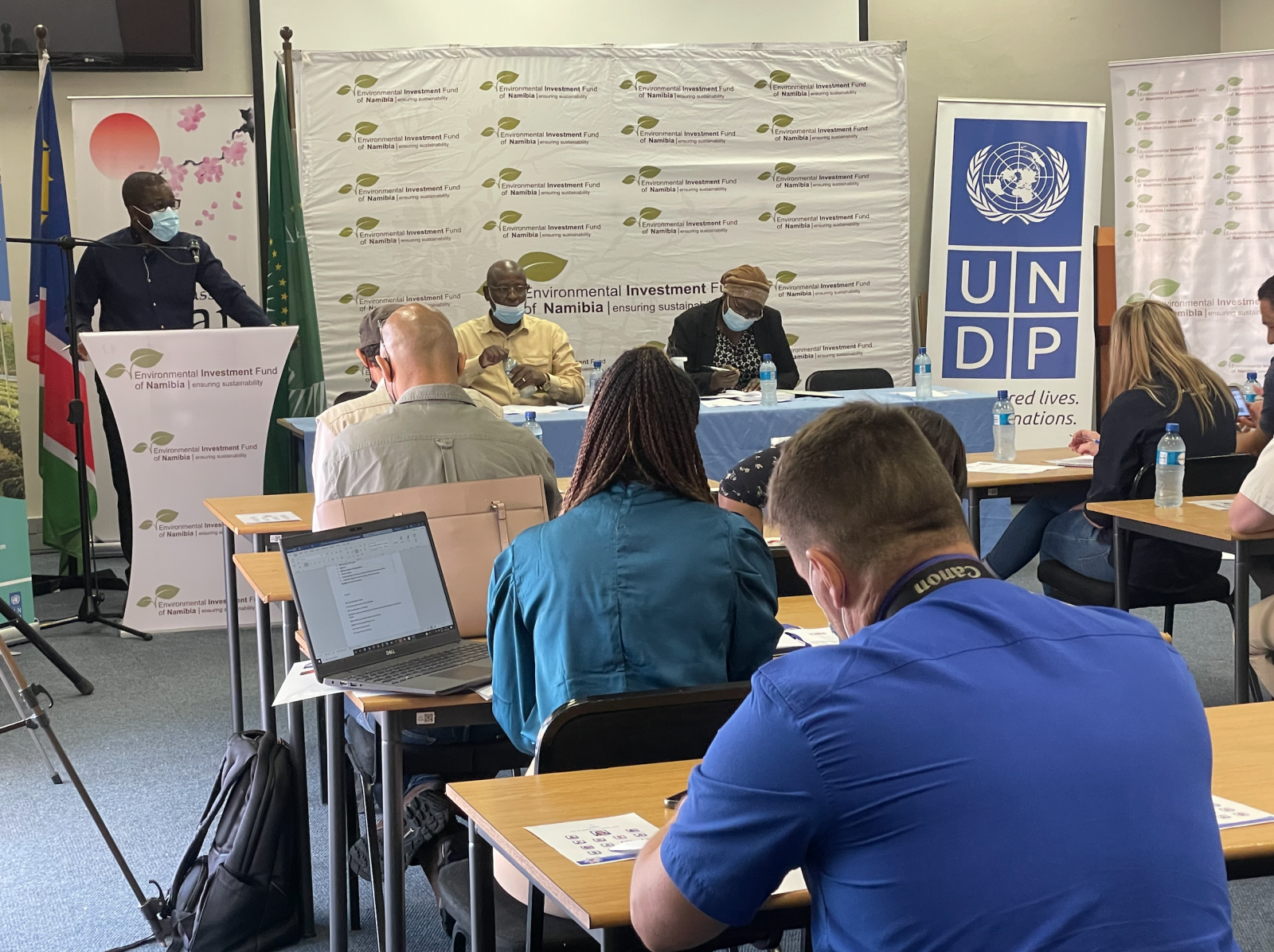
Media Statement
Environmental Investment Fund of Namibia (EIF) hosts the Urban Agriculture Grant e-voucher card issuance and terminal roll-out in City of Windhoek (Khomas Region)
15 March 202
Windhoek, 15 March 2022 – Environmental Investment Fund of Namibia (EIF) yesterday morning hosted the Urban Agriculture Grant e-voucher card issuance and terminal roll-out in Windhoek as part of the four regions identified to benefit from the Urban Agriculture Grant e-voucher card Issuance and terminal roll-out under the project titled “Strengthening Namibia food systems to recover from emergencies and disease-related shocks through the Build Back Better (BBB) programme”.
The Ministry of Agriculture, Water and Land Reform (MAWLR) - in partnership with the United Nations Development Program (UNDP) and Environmental Investment Fund of Namibia (EIF), as a Responsible Party – launched the Urban Agriculture concept- Build Back Better (BBB) Program with financial support from the Japanese Government. This initiative is being implemented in collaboration with the Windhoek Municipality (Khomas Region), Swakopmund Municipality (Erongo Region), Rundu Town Council (Kavango East Region) and the Daweb Constituency (Maltahohe) of the Hardap Region.
The e-voucher system terminal set-up in the 4 participating regions and issuance of the card to the beneficiaries, Environmental Investment Fund of Namibia (EIF) will use the same platform to issue Grant contracts to the beneficiaries.
Delivering Remarks this morning on behalf of the Environmental Investment Fund of Namibia (EIF) was Mr. Karl Mutani Aribeb who highlighted the background of the Build Back Better (BBB) Program and thanked the Government of the Republic of Namibia and united Nations Development Programme (UNDP) for conceptualizing this programme and the Government of the Republic of Japan for unveiling the funding for the programme. “Us a the EIF are static about this project not only from a grant management perspective but because it talks about food security but more so on Urban Agriculture as most interventions are geared only towards rural food production”.

